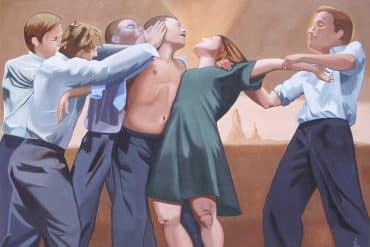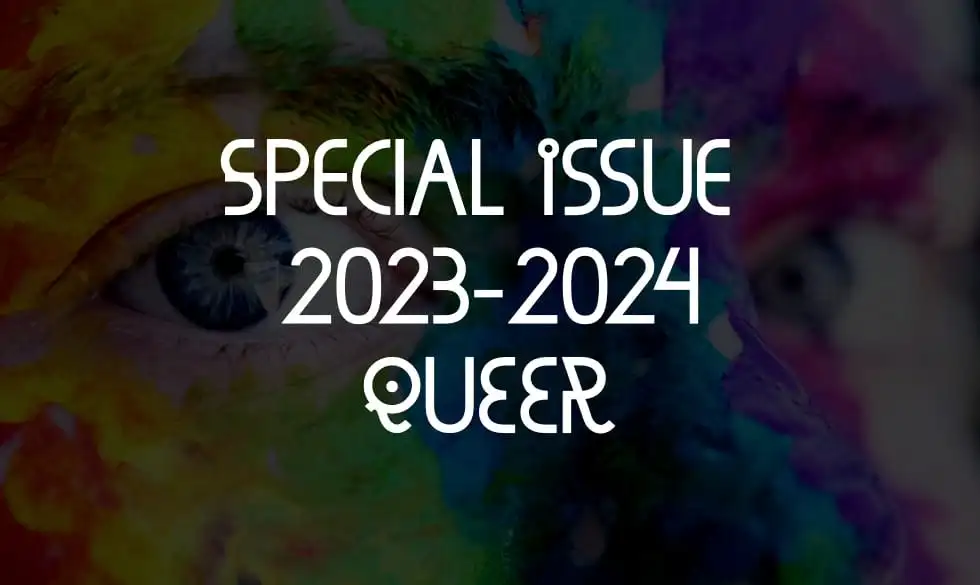A Startling Note: “Looking for Gay Friends” in the Triangle Place
Author’s Memo
This short story depicts the complex processes of sexual identity formation. Written from a first-person perspective, the story narrates a young gay man’s experience of sexual awakening on a university campus in Beijing at the turn of the century. The story points to the complex process of identity formation (‘interpellated’ by the message on a written note) in post-Mao Chinese society and shows the role of social and cultural conditions in delimiting people’s knowledge and understanding of their identities as well as the active role of individuals in imagining their own identities. This shows that identity formation is never a straightforward process, and it often involves individuals actively negotiating with complex social structures and coming to their identities. Identity, therefore, is constructed both by society and by individuals.

One day I passed by the Triangle Place, or Sanjiaodi, a popular bulletin board area located in the middle of the university campus, on my way to a morning class, a small piece of paper caught my attention.
‘Looking for gay friends,’ the note said, ‘if you like men as I do and if you want to meet friends on campus, please get in touch through Email xx*@*xx.com.’
I couldn’t believe my eyes. It was a small, printed and freshly posted note hidden amongst a wall of posters and adverts. The Email address was a combination of random numbers and letters, without an indication of who the person was. The morning sun shone through the trees and lit the Triangle Place brightly. I had to wink hard a few times to make sure that it wasn’t my hallucination.
I could feel the shock when I first caught sight of the note. My hand sweated and my legs felt heavy. That was in the early 2000s when I was a university student in Beijing. Although I had heard of the term tongxinglian, or homosexuality, primarily mentioned in books and newspaper as a form of criminality and pathology, it was my first time to see a note like this, openly posted in a public place on campus. Who posted it and why? Would that get them get into trouble?
I looked around in sharp alert. Although there were several people around, browsing posters and adverts such as music events, football matches as well as TOEFL and GRE training classes, I was the only one who stared at the note.
The easiest thing for me to do was to tear down the note and keep the Email address to myself. But what if other people noticed me? What would they think of me? Would that get me into trouble? I didn’t know the answers to these questions, but the idea of the risk made my hands sweat.
A man walked in my direction. I quickly turned around and walked away from the Triangle Place. I accelerated my footsteps and was almost running. When I got to the classroom and dumped my bag on the desk, I was out of breath.
It was a political science class that day. The teacher was talking about the importance of maintaining Chinese socialist values. I didn’t understand what the term meant and how it could help fight against the invasion of decadent Western bourgeois liberalist values. The shape and content of the note lingered in my mind, and I couldn’t take my mind off it. I tried to recall the Email address I had seen but couldn’t get it right.
By the time the teacher announced the class break, I had already made up my mind to go back to the Triangle Place to get the note. Even if people saw me there, so what? They’d think I wasn’t happy with the note and felt the need to take it down, so that the Chinese socialist values could be properly restored and no one else on campus would be misguided by the message. If the note was seized by the police, the person who posted the note could get into trouble! At least I could stop this from happening!
I ran as fast as I could and was almost breathless. I could see the Triangle Place in front of me. My heart pumped fast in anticipation and excitement. I took a quick glance and saw that no one was around. The music event, the football match and the TOEFL and GRE training classes posters were still there, but the note had vanished. A narrow white stripe torn from the paper could still be seen but the content had gone. I was one step too late! Someone must have taken it away, with good or bad intentions.
A sense of disappointment arose in me. Slowly and reluctantly, I walked back to the classroom. My mind went blank. I couldn’t hear or understand what the teacher said. Until then I’d only seen mobile or pager numbers scribbled on the walls and doors of the toilet stalls, but didn’t have the courage to make any contact. This seemed a real opportunity for me to get to know someone, and I’d missed it! I was the one to blame because I wasn’t quick and brave enough.
That afternoon I went to the university library and found all the books I could find about homosexuality. Most of them were old publications located in the psychology section and often fell under the heading of ‘abnormal psychology’ or ‘sexual psychology’. In the evening I typed the term tongxinglian on the Baidu search engine and was surprised to find a wealth of information. There were websites, tourist guides and community organisations. Limited as they were at the time, they were sufficient for someone who was not familiar with the scene to start with.
Although most of the website contents portrayed a negative image of homosexuality, there were some more positive descriptions. I learned that homosexuality was decriminalised in China in 1997 and removed from the classification of mental disorders in 2001, the same year I saw the note. I also discovered some gay dating websites and online chatrooms and answered a few personal ads using my personal Email address.
Many years later I could still recall that morning, when the sun shone brightly on the Triangle Place, a young man was staring at a small note, not knowing what to do. Back then he didn’t have the courage to get the note, but the decision he made in the next hour would make all the difference to his later life.
Credits
Image a bulletin by Paul Hanaoka for Unsplash
Featured Image by Albany Capture for Unsplash
Learn More
New to autoethnography? Visit What Is Autoethnography? How Can I Learn More? to learn about autoethnographic writing and expressive arts. Interested in contributing? Then, view our editorial board’s What Do Editors Look for When Reviewing Evocative Autoethnographic Work?. Accordingly, check out our Submissions page. View Our Team in order to learn about our editorial board. Please see our Work with Us page to learn about volunteering at The AutoEthnographer. Visit Scholarships to learn about our annual student scholarship competition.
Hongwei Bao (he/they) grew up in China and lives in Nottingham, UK. He studied Gender and Cultural Studies at the University of Sydney, Australia, and creative writing at City Lit, London. He uses poetry, short stories and creative nonfiction to explore issues of queer desire, Asian identity, gender politics and transcultural intimacy. His work has appeared in Cha: An Asian Literary Journal, Ponder Review, Positions Politics, Shanghai Literary Review, The Autoethnographer, The Sociological Review, Voice & Verse, Write On and Words Without Borders. His short stories were shortlisted for the Plaza Prize 2023 for Sudden Fiction. His nonfiction ‘Fragrant Bananas’ is forthcoming with the Allegory Ridge Nonfiction Anthology Allegheny.













